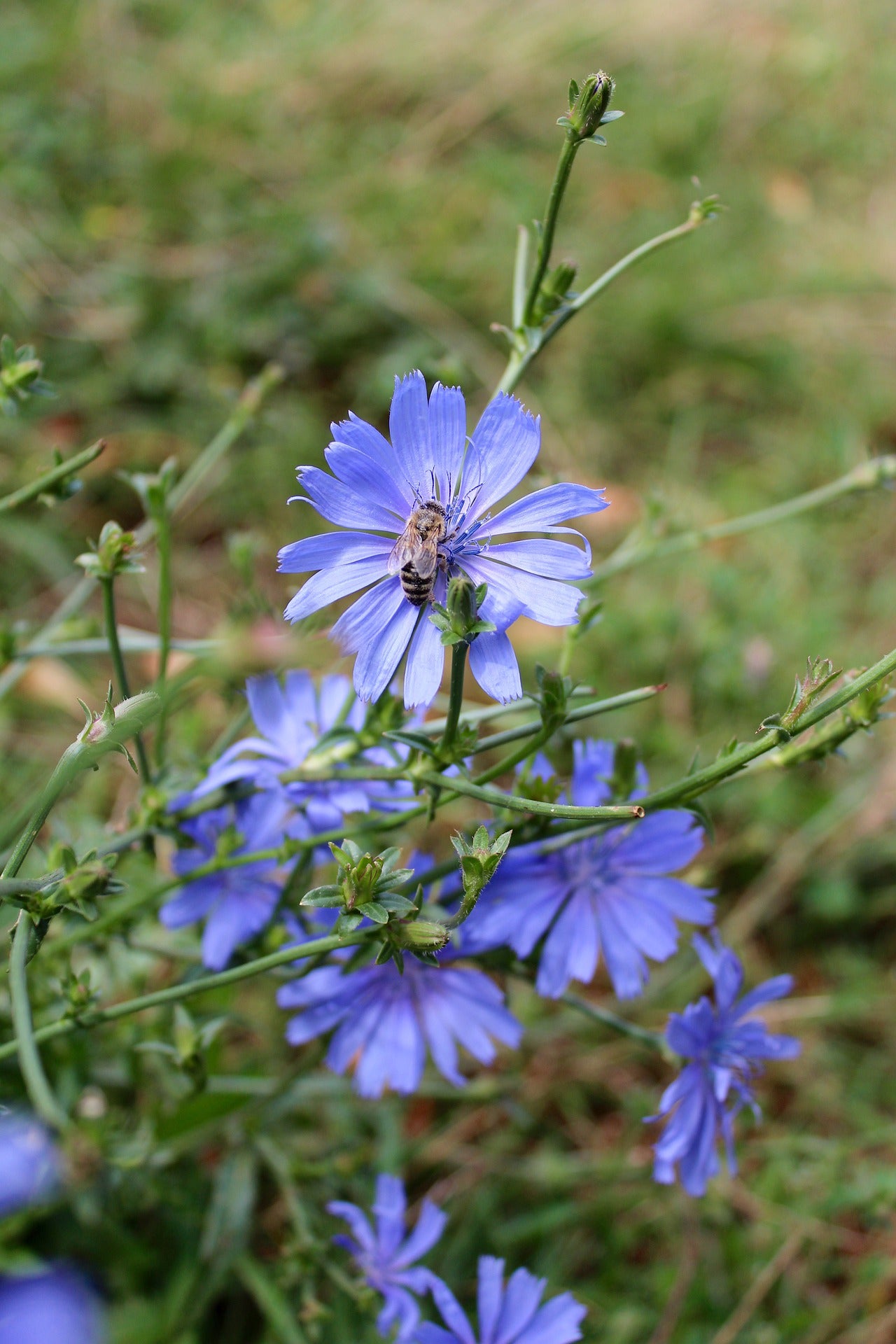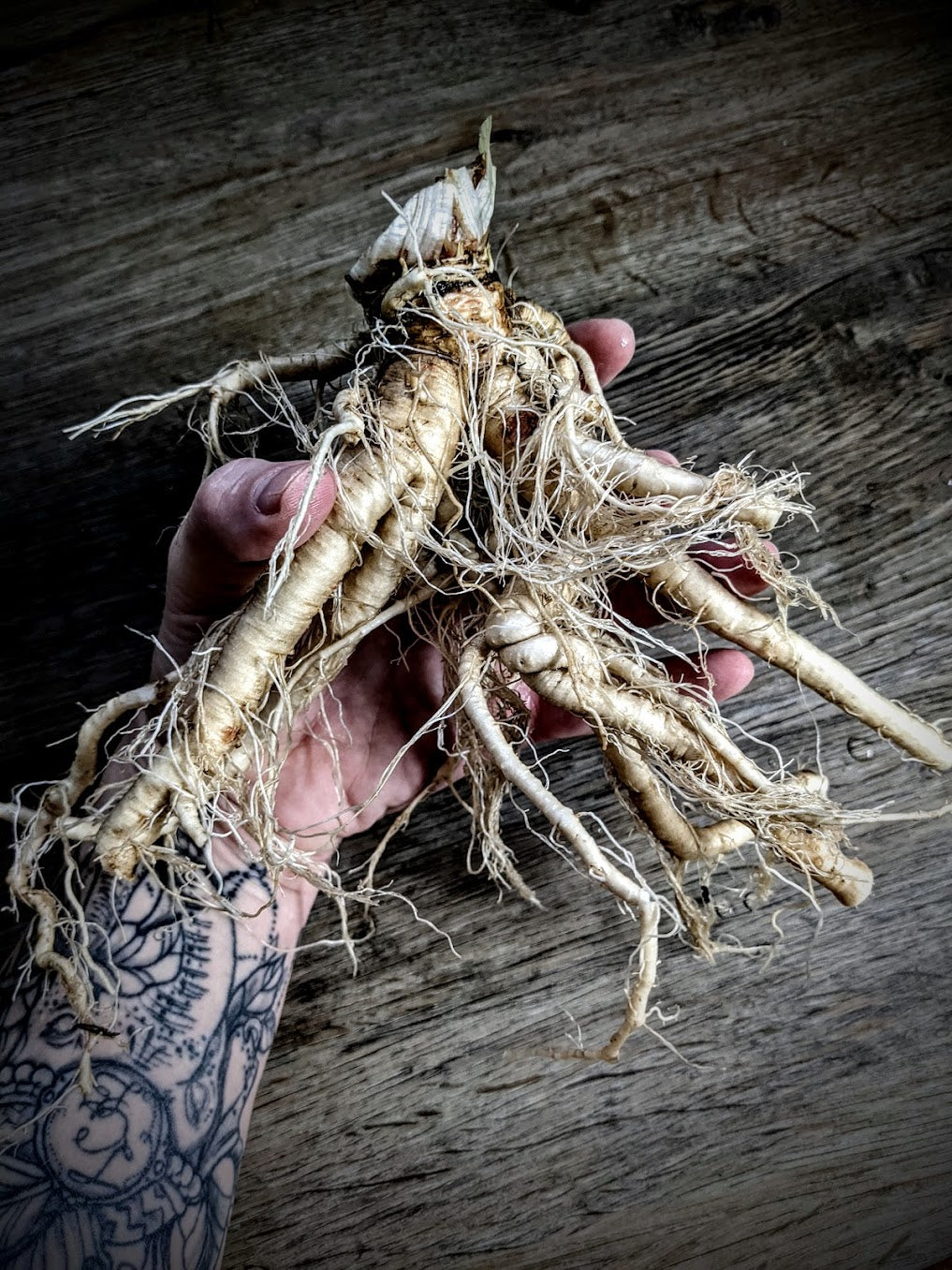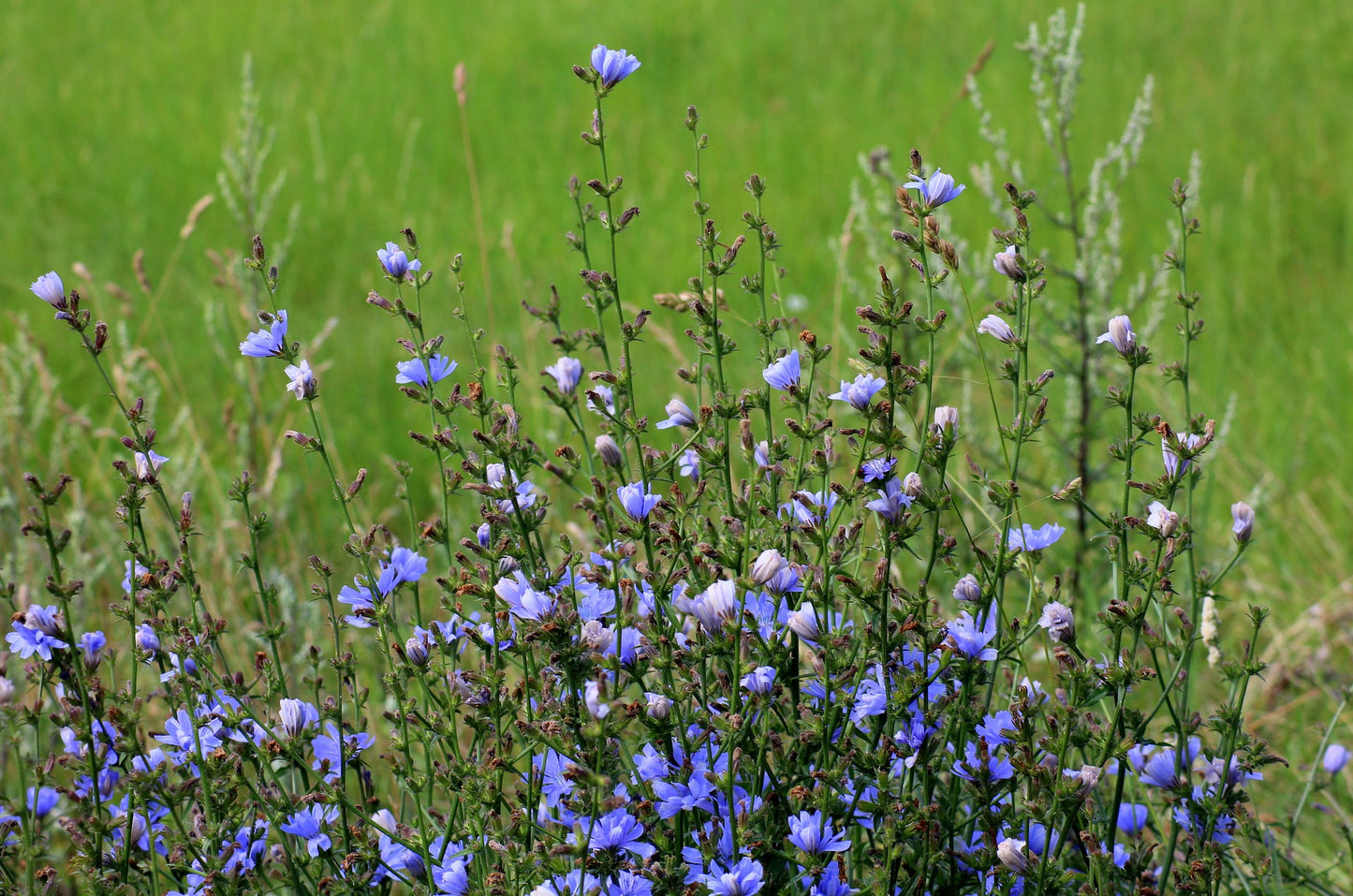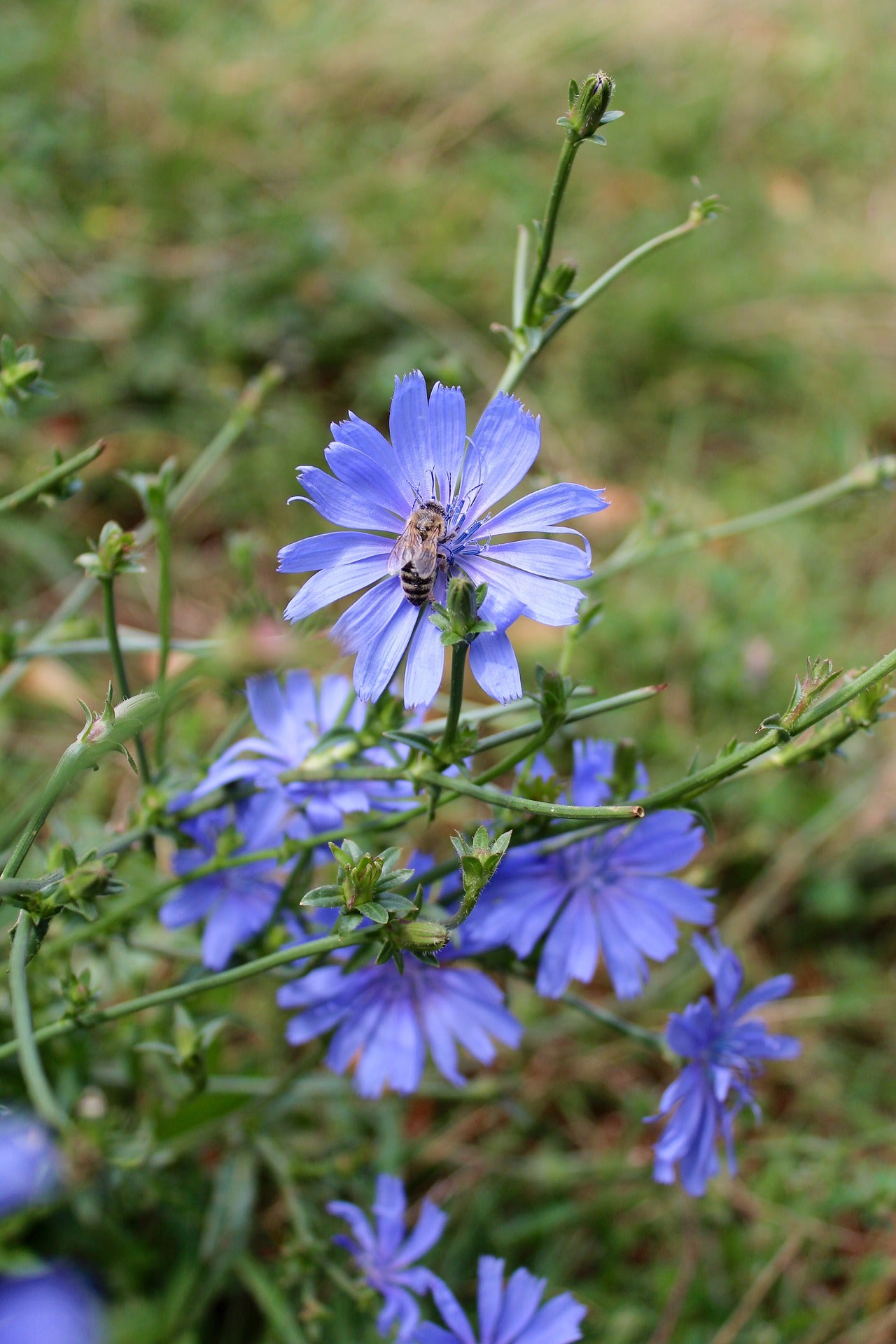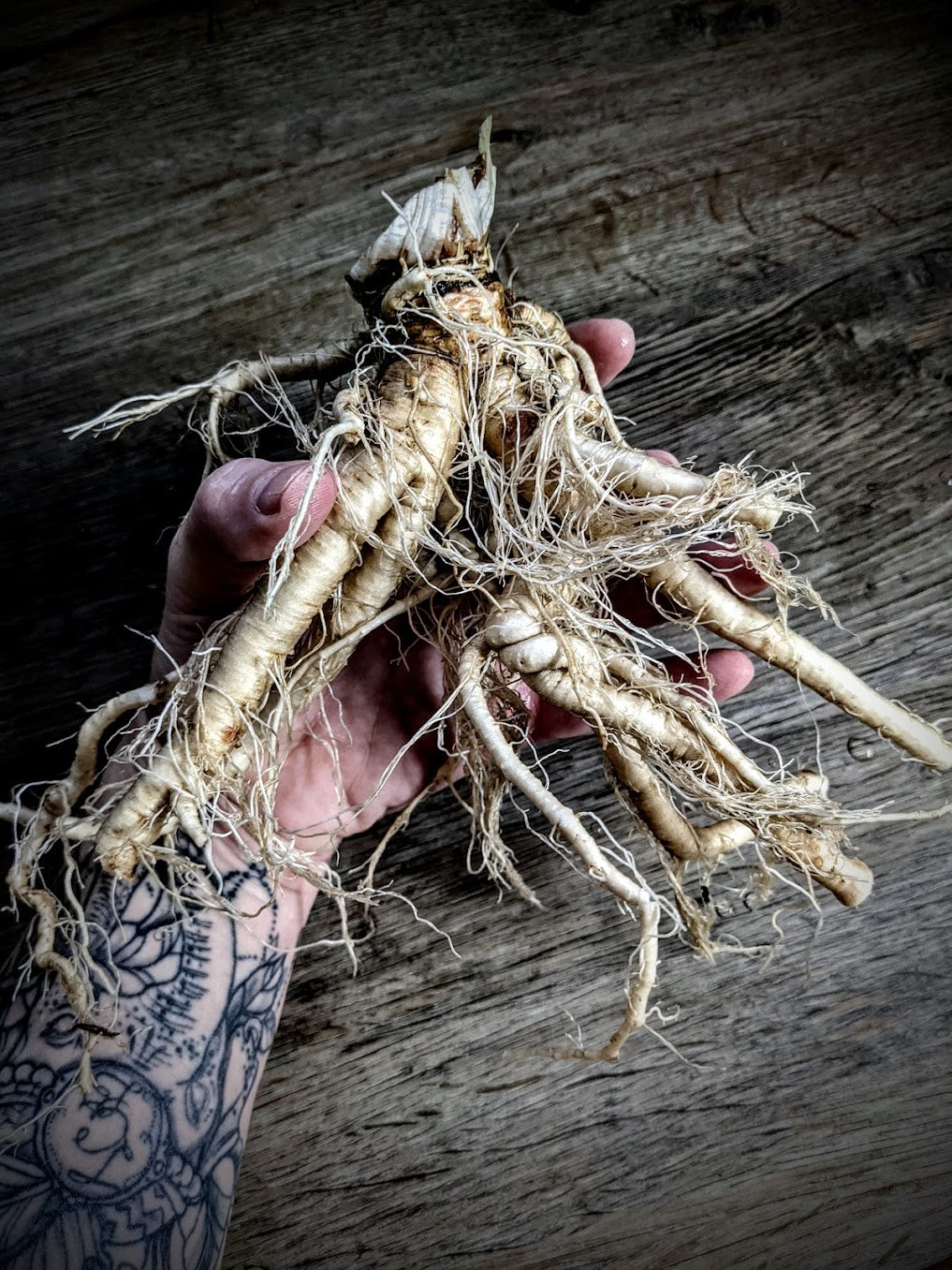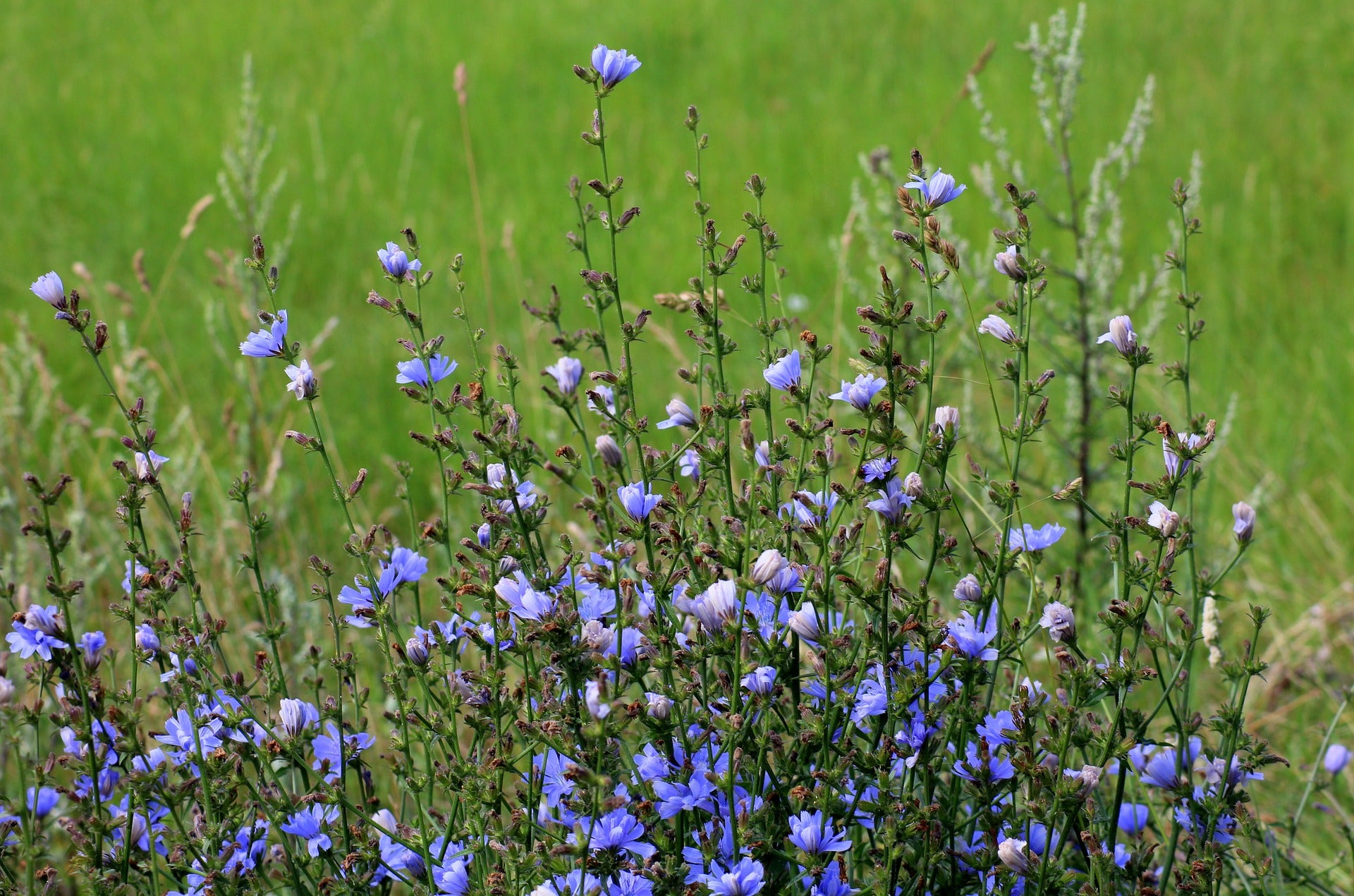Chicory Seeds | Cichorium intybus
Chicory Seeds | Cichorium intybus
Couldn't load pickup availability
Popularized as an affordable and widely available coffee substitute and livestock feed, chicory flies under the radar as a nourishing medicinal ally.
As a bitter and hepatic plant, chicory root has been traditionally worked with to stimulate digestion and assist the liver in repairing itself from environmental toxin damage, supporting practically all bodily function downstream.
Very closely related to dandelions, the greens and roots of chicory can be eaten in similar ways.
Chicory is noxious in Colorado & New Mexico so is illegal to grow and cannot be shipped to these states. It is invasive in Alaska, Kentucky, & West Virginia, so should be wild-harvested here, rather than planted intentionally.
Approximately 100 seeds, harvested for 2023.
Grown using only compost, water, & organic fertilizer, our plants are never treated or sprayed with anything at all.
Lifecycle: Biennial or short-lived perennial
Zones: 3-9
Region: Native to Eurasia
Actions: Hepatic, bitter, anti-inflammatory, anticarcinogenic, antimicrobial, immune-stimulating.
Parts used: Roots, leaves, and flowers
Indications: Constipation, insulin resistance, liver disease, chronic skin conditions,
Planting: In the fall or spring, sprinkle seeds on the soil surface and press in or barely cover with soil. Keep evenly moist until germination, which is rapid.
Spacing: 6"
Location: Chicory requires well-drained soil with plenty of organic matter and a pH of 5.5 or greater. It performs best in full sun and when temperatures are below 75 degrees F
Germination: 3-7 days
Our Seeds
The majority of our seeds offered are saved from our small medicinal plant farm right here in Oregon's Willamette Valley.
Our plants are grown only with water, compost, & organic fertilizer. NEVER sprayed with herbicides, pesticides, synthetic fertilizers, or anything else.
There are some seeds that we have not been able to harvest in abundance ourselves yet, so these are provided by a farm here in Oregon that is certified organic by the USDA and Oregon Tilth.
Important
Always check with local authorities (such as your county extension) to see if non-native plants are invasive or noxious in your region.
Noxious plants are illegal to grow and cannot be shipped across state borders. Invasive species should never be intentionally planted, but should be harvested from the wild instead.
They may hold medicinal value but they can destroy native ecosystems and habitats. There are likely less destructive alternatives with similar medicinal value that you can plant.
